Politics
Zelensky prepares for high-stakes talks with Trump in Washington
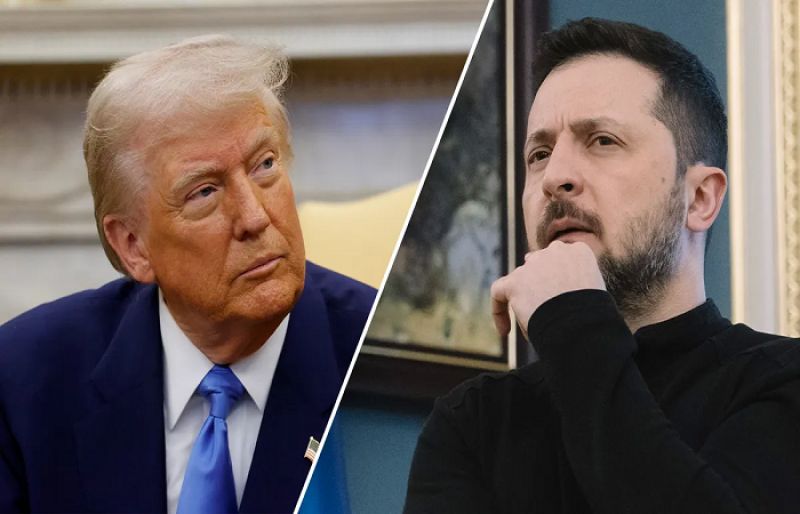

Ukraine’s President Volodymyr Zelensky is flying to Washington on Monday under intense US pressure to agree to a swift end to Russia’s war, but he remains adamant about protecting Kyiv’s interests — while seeking to avoid a repeat of his earlier Oval Office clash with Donald Trump.
Trump extended the invitation to Zelensky after hosting Vladimir Putin, Ukraine’s chief adversary, at a high-profile summit in Alaska a move that stunned many in Ukraine, where hundreds of thousands have been killed since Russia’s 2022 invasion.
The Alaska talks ended without the ceasefire Trump had hoped for.
On Saturday, the US president renewed his call for a rapid, comprehensive peace deal, bluntly saying that Kyiv should accept because “Russia is a very big power, and they’re not.”
Such stark language has put the burden back on Zelensky, leaving him in a precarious position as he prepares for his first return to Washington since his heated Oval Office encounter with Trump in February, which broke down in acrimony.
At that time, Trump publicly scolded him before the world’s media, warning that Zelensky did not “hold the cards” in peace talks and that Kyiv’s stubbornness could push the world closer to a third world war.
Trump’s pursuit of a quick deal defies the intense diplomacy by European allies and Ukraine to convince him that a ceasefire should come first, rather than, as sought by the Kremlin, once a settlement is agreed.
A source familiar with the matter told Reuters that European leaders had also been invited to Monday’s meeting between Trump and Zelensky, though it was unclear who would attend.
Trump briefed Zelensky on his talks with Putin during a call on Saturday that lasted more than an hour and a half, the Ukrainian leader said. They were joined after an hour by European and NATO officials, he added.
“The impression is he wants a fast deal at any price,” a source familiar with the conversation said.
The source said Trump told Zelensky that Putin had offered to freeze the front lines elsewhere as part of a deal, if Ukraine fully withdrew its troops from the eastern Donetsk and Luhansk regions, something Zelensky said was not possible.
Trump and US envoy Steve Witkoff told the Ukrainian leader that Putin had said there could be no ceasefire before that happened, and that the Russian leader could pledge not to launch any new aggression against Ukraine as part of an agreement.
Kyiv has publicly dismissed the idea of withdrawing from internationally recognised Ukrainian land as part of a deal, and says the industrial Donetsk region serves as a fortress holding back Russian advances deeper into Ukraine.
Oleksandr Merezhko, head of the Ukrainian parliament’s foreign affairs committee, told Reuters by phone that Trump’s emphasis on a deal rather than a ceasefire carried great risks for Ukraine.
“In Putin’s view, a peace agreement means several dangerous things Ukraine not joining NATO, his absurd demands for denazification and demilitarisation, the Russian language and the Russian church,” he said.
Any such deal could be politically explosive inside Ukraine, Merezhko said, adding he was worried that Putin’s ostracism in the West had ended.
Avoiding a repeat of the Oval Office row is critical for Zelensky to preserve relations with the US, which still provides military assistance and is the key source of intelligence on Russia’s military activity.
For Ukraine, robust guarantees to prevent any future Russian invasion are fundamental to any serious settlement.
Two sources familiar with the matter said Trump and the European leaders discussed potential security guarantees for Ukraine similar to the transatlantic NATO alliance’s mutual support pledge during their call.
It says, in effect, that an attack on one is treated as an attack on all.
One of the two sources, who requested anonymity to discuss sensitive matters, said European leaders were seeking details on what kind of US role was envisaged.
Zelensky has repeatedly said a trilateral meeting with the Russian and US leaders is crucial to finding a way to end the full-scale war launched by Russia in February 2022.
Trump this week voiced the idea of such a meeting, saying it could happen if his talks in Alaska with Putin were successful.
“Ukraine emphasises that key issues can be discussed at the level of leaders, and a trilateral format is suitable for this,” Zelensky wrote on social media on Saturday.
Putin’s aide, Yuri Ushakov, told the Russian state news agency TASS that a three-way summit had not been discussed in Alaska.
Politics
Indian man kills wife, takes selfie with dead body
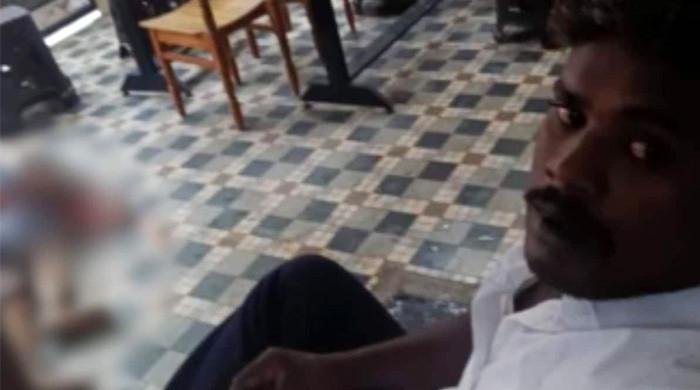

A man in India’s south brutally killed his estranged wife at a women’s hostel and took a selfie with her dead body, according to NDTV.
The victim, identified as Sripriya, employed at a private firm in Coimbatore, Tamil Nadu, had separated from her husband, Balamurugam, who was from Tirunelveli.
Police said the suspect arrived at the hostel on Sunday afternoon, concealing a sickle in his clothes, and was seeking to meet her.
They had an argument soon after the couple met, and the feud turned into a violent attack by Balamurugan, who drew the sickle and hacked the woman to death.
Furthermore, the police said he then took a selfie with her body and shared it on his WhatsApp status, accusing her of “betrayal”.
The incident spread panic and chaos in the hostel.
Following the brutal murder, the suspect did not escape from the spot but waited until the police arrived, and he was arrested at the crime scene. The murder weapon was recovered.
The initial investigation suggested that he suspected his wife of being in a relationship with another man.
Politics
Southeast Asia storm deaths near 700 as scale of disaster revealed
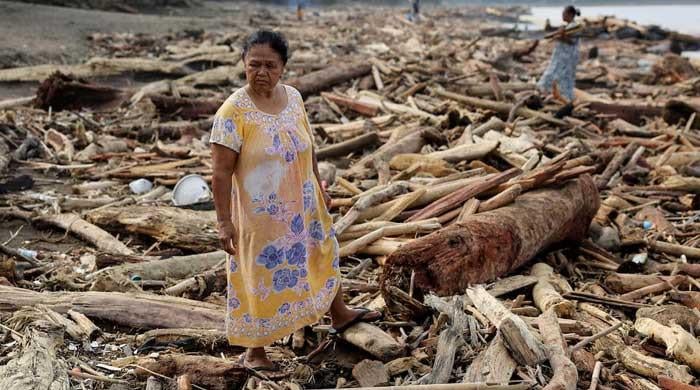
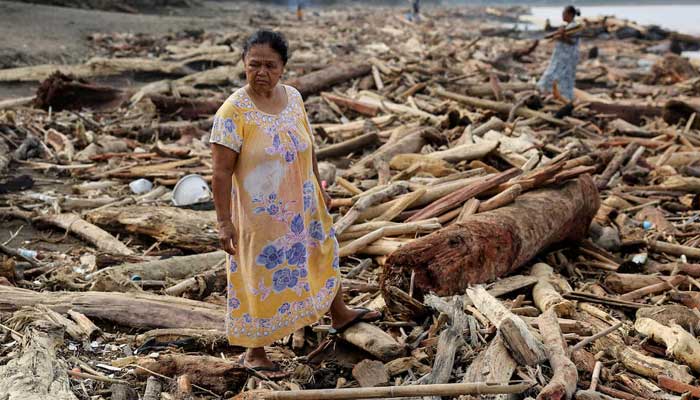
- Indonesia, Malaysia and Thailand witness large scale devastation.
- At least 176 people perish in Thailand and three in Malaysia.
- Indonesia’s death toll reaches 502 with 508 more still missing.
PALEMBAYAN: Rescue teams in western Indonesia were battling on Monday to clear roads cut off by cyclone-induced landslides and floods, as improved weather revealed more of the scale of a disaster that has killed close to 700 people in Southeast Asia.
Indonesia, Malaysia and Thailand have seen large scale devastation after a rare tropical storm formed in the Malacca Strait, fuelling torrential rains and wind gusts for a week that hampered efforts to reach people stranded by mudslides and high floodwaters.
At least 176 have been killed in Thailand and three in Malaysia, while the death toll climbed to 502 in Indonesia on Monday with 508 missing, according to official figures.
Under sunshine and clear blue skies in the town of Palembayan in Indonesia’s West Sumatra, hundreds of people were clearing mud, trees and wreckage from roads as some residents tried to salvage valuable items like documents and motorcycles from their damaged homes.
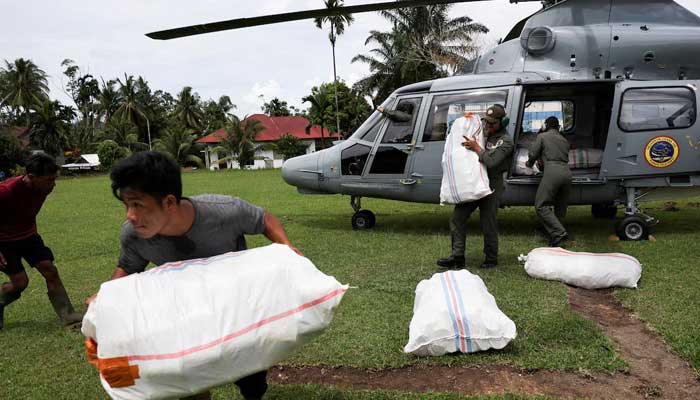
Men in camouflage outfits sifted through piles of mangled poles, concrete and sheet metal roofing as pickup trucks packed with people drove around looking for missing family members and handing out water to people, some trudging through knee-deep mud.
Months of adverse, deadly weather
The government’s recovery efforts include restoring roads, bridges and telecommunication services.
More than 28,000 homes have been damaged in Indonesia and 1.4 million people affected, according to the disaster agency.
Indonesian President Prabowo Subianto visited the three affected provinces on Monday and praised residents for their spirit in the face of what he called a catastrophe.
“There are roads that are still cut off, but we’re doing everything we can to overcome difficulties,” he said in North Sumatra.
“We face this disaster with resilience and solidarity. Our nation is strong right now, able to overcome this.”
The devastation in the three countries follows months of adverse and deadly weather in Southeast Asia, including typhoons that have lashed the Philippines and Vietnam and caused frequent and prolonged flooding elsewhere.
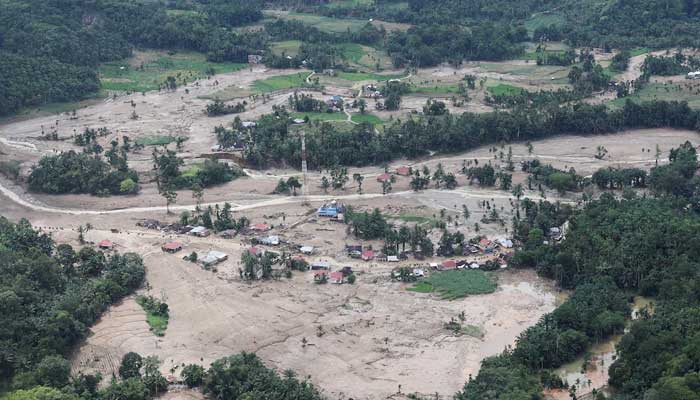
Scientists have warned that extreme weather events will become more frequent as a result of global warming.
Marooned for days
In Thailand, the death toll rose slightly to 176 on Monday from flooding in eight southern provinces that affected about three million people and led to a major mobilisation of its military to evacuate critical patients from hospitals and reach people marooned for days by floodwaters.
In the hardest-hit province of Songkhla, where 138 people were killed, the government said 85% of water services had been restored and would be fully operational by Wednesday.
Much of Thailand’s recovery effort is focused on the worst-affected city Hat Yai, a southern trading hub which on November 21 received 335 mm (13 inches) of rain, its highest single-day tally in 300 years, followed by days of unrelenting downpours.
Prime Minister Anutin Charnvirakul has set a timeline of seven days for residents to return to their homes, a government spokesperson said on Monday.
In neighbouring Malaysia, 11,600 people were still in evacuation centres, according to the country’s disaster agency, which said it was still on alert for a second and third wave of flooding.
Politics
British MP Tulip Siddiq handed two-year prison sentence in Bangladesh graft case
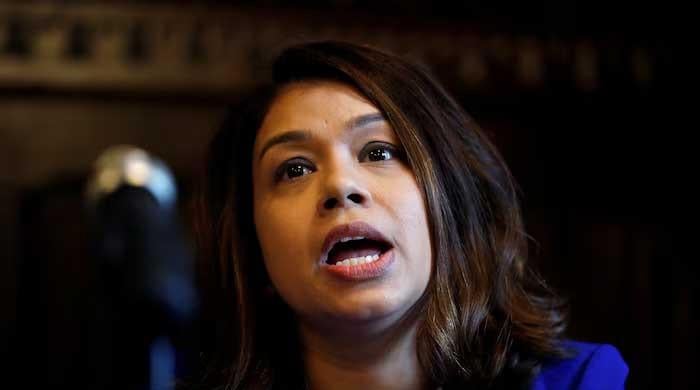
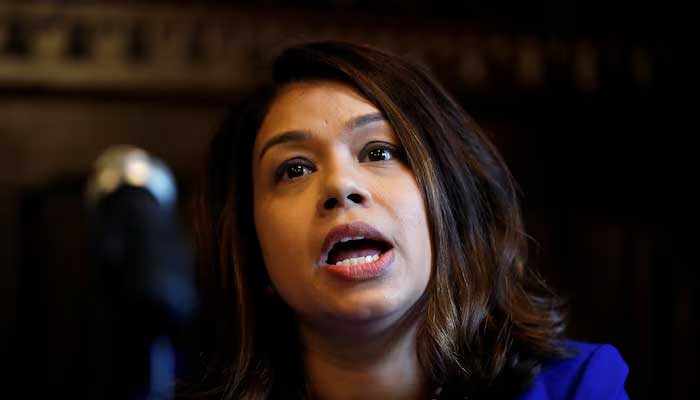
- Ex-Bangladesh PM Sheikh Hasina, sister Rehana also sentenced.
- Case relates to illegal allocation of a plot of land: local media.
- Prosecutors highlight political influence, collusion abuse of power.
DHAKA: A Bangladesh court sentenced British parliamentarian and former minister Tulip Siddiq to two years in jail in a corruption case involving the alleged illegal allocation of a plot of land, local media reported.
The verdict was delivered in absentia as Siddiq, her aunt and former Bangladesh Prime Minister Sheikh Hasina, and Hasina’s sister Sheikh Rehana — all co-accused in the case — were not present in court.
Hasina was sentenced to five years in jail and Rehana to seven, the local media reports said.
Hasina, who fled to neighbouring India in August 2024 at the height of an uprising against her government, was sentenced to death last month over her government’s violent crackdown on demonstrators during the protests.
Last week, she was handed a combined 21-year prison sentence in other corruption cases.
Prosecutors said that the land was unlawfully allocated through political influence and collusion with senior officials, accusing the three powerful defendants of abusing their authority to secure the plot, measuring roughly 13,610 square feet, during Hasina’s tenure as prime minister.
Most of the 17 accused were absent when the judgement was pronounced.
Siddiq, who resigned in January as the UK’s minister responsible for financial services and anti-corruption efforts following scrutiny over her financial ties to Hasina, has previously dismissed the allegations as a “politically motivated smear”.
Britain does not currently have an extradition treaty with Bangladesh.
-

 Sports1 week ago
Sports1 week agoWATCH: Ronaldo scores spectacular bicycle kick
-

 Entertainment1 week ago
Entertainment1 week agoWelcome to Derry’ episode 5 delivers shocking twist
-
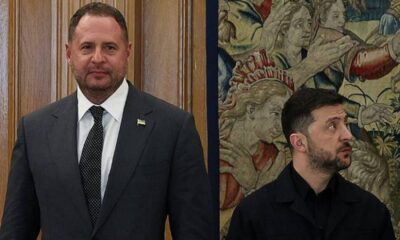
 Politics1 week ago
Politics1 week agoWashington and Kyiv Stress Any Peace Deal Must Fully Respect Ukraine’s Sovereignty
-

 Business1 week ago
Business1 week agoKey economic data and trends that will shape Rachel Reeves’ Budget
-
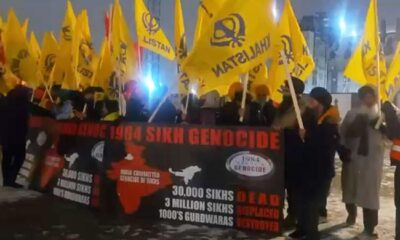
 Politics1 week ago
Politics1 week ago53,000 Sikhs vote in Ottawa Khalistan Referendum amid Carney-Modi trade talks scrutiny
-

 Tech6 days ago
Tech6 days agoWake Up—the Best Black Friday Mattress Sales Are Here
-

 Fashion1 week ago
Fashion1 week agoCanada’s Lululemon unveils team Canada kit for Milano Cortina 2026
-

 Tech1 day ago
Tech1 day agoGet Your Steps In From Your Home Office With This Walking Pad—On Sale This Week






